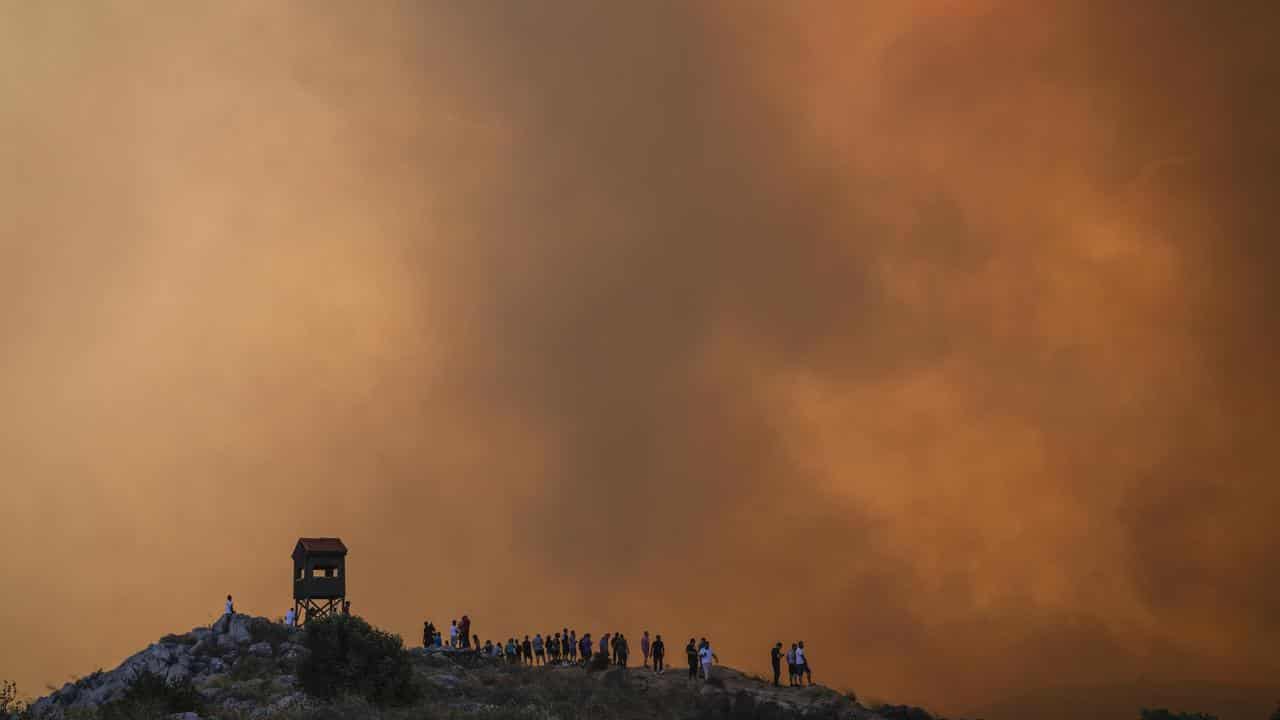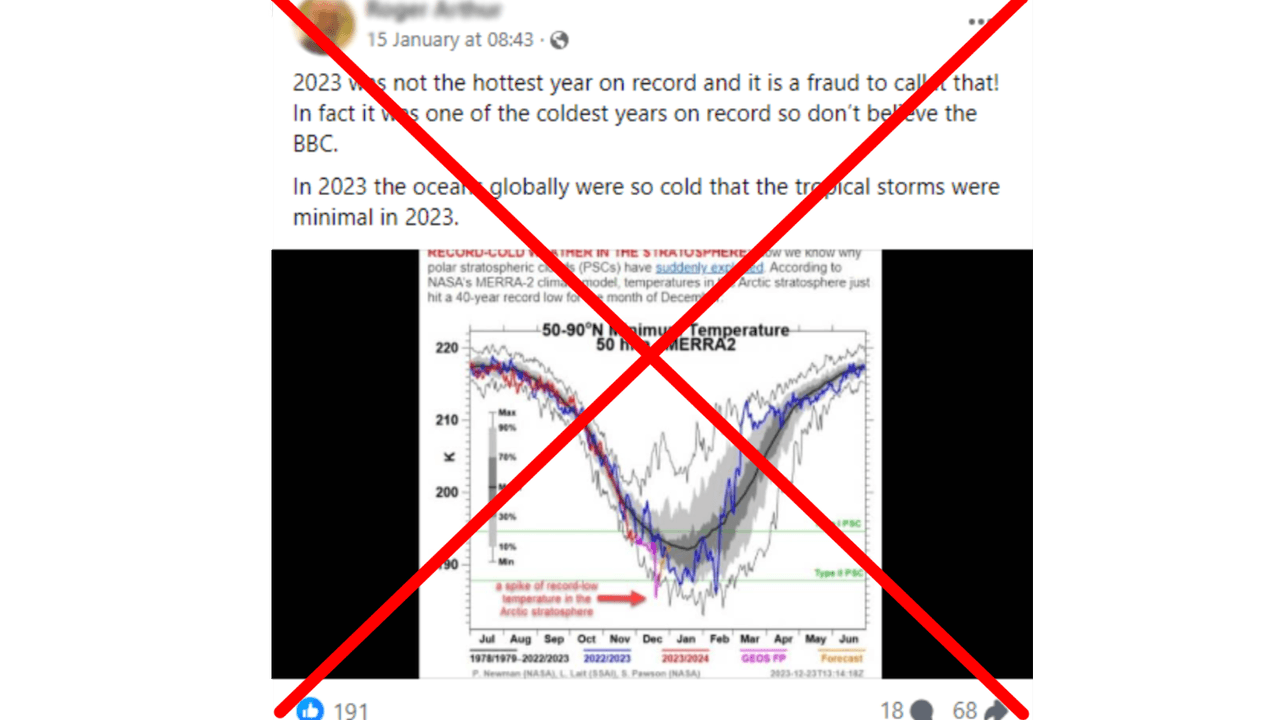
What was claimed
2023 was not the hottest year on record.
Our verdict
False. Multiple datasets confirm the scientific consensus that 2023 was the hottest year.
It is being claimed that 2023 was not the hottest year on record - contrary to the findings of the world's leading scientific agencies.
One post even suggests 2023 was "one of the coldest".
The claim is false. Experts say we can be very confident in the data from the world’s leading scientific agencies that show 2023 was the hottest year in recorded history.
The claim is made in a Facebook post (archived here) that says: "2023 was not the hottest year on record and it is a fraud to call it that! In fact it was one of the coldest years on record so don't believe the BBC. In 2023 the oceans globally were so cold that the tropical storms were minimal in 2023."
The post shares a graph headlined "Record cold weather in the stratosphere" which shows information from NASA.
NASA, however, is one of the science agencies to report that 2023 was the warmest year on record.

NASA says global temperatures for 2023 were about 1.2C above the average for its baseline period (1951-1980). The assessment makes allowance for phenomena that can affect climate, such as El Nino and volcanic eruptions.
The graph in the Facebook post, taken from a non-NASA website, is about temperature in the stratosphere, which does cool as greenhouse gases warm the planet, according to NASA, The Royal Society and Yale University.
NASA's assessment of 2023 as a temperature peak concurs with that of the US National Oceanic and Atmospheric Administration (NOAA), which declared 2023 the hottest on record “by far”.
NOAA's 2023 annual global climate report says average land and ocean surface temperature was 1.18C above the 20th century average and the highest temperature in NOAA's 1850-2023 climate record.
It beat the next warmest year, 2016, by a record margin of 0.15C.
The World Meteorological Organisation (WMO) also confirmed 2023 was the warmest on record, saying annual average global temperature approached 1.5C above pre-industrial levels.
The WMO said six leading international global temperature datasets showed that the annual average global temperature was 1.45C (with error margin of ± 0.12 degrees) above pre-industrial levels (1850-1900) in 2023.
The six datasets come from NASA, NOAA, Berkeley Earth, the Met Office (UK), the Japan Meteorological Agency and the European Centre for Medium-Range Weather Forecasts.
"Global temperatures in every month between June and December set new monthly records. July and August were the two hottest months on record," the WMO said.
AAP FactCheck asked Professor Mark Howden, director of the Australian National University's Institute for Climate, Energy and Disaster Solutions, how we can be so sure of the data.
He said the key datasets had been assessed via peer-reviewed publication, comparative assessment, sophisticated checking against other data and error-checking.

"They have slight variations from each other as to how they assess temperatures for areas of the earth that have lesser coverage in terms of temperature measurement (for example deserts and the polar regions),” Prof Howden said.
“Unsurprisingly, the differences between these temperature records tend to be larger the further back in the record we go.
“Nevertheless, 1) all the temperature sets are almost identical over recent times as data coverage and integration has improved, 2) they all show very similar long-term warming and 3) they all show that 2023 was the hottest year in the historical record."
Prof Howden said all records have a degree of uncertainty, “typically a few hundredths of a degree Celsius for the recent record” but the temperature difference between 2023 and the next warmest years was much larger than the uncertainty.
"We can be very confident that 2023 was the hottest year in the historical record," he said.
Dr Simon Bradshaw, director of research at the Climate Council, told AAP FactCheck that the close agreement across the six datasets, and the margin by which 2023 exceeded the temperature of the previous warmest year "leaves no reasonable doubt that 2023 was the hottest year on record."
Professor David Karoly, emeritus professor at the University of Melbourne's School of Geography, Earth and Atmospheric Sciences, agreed.
"2023 is clearly the hottest year," he said while also pointing to the six datasets.
The Verdict
The claim that 2023 was not the hottest year on record is false.
Multiple datasets are consistent in showing that 2023 was the hottest year on record.
Even taking into account the most extreme margin of error, 2023 would still be the hottest year.
False - The claim is inaccurate.
AAP FactCheck is an accredited member of the International Fact-Checking Network. To keep up with our latest fact checks, follow us on Facebook, Twitter and Instagram.









